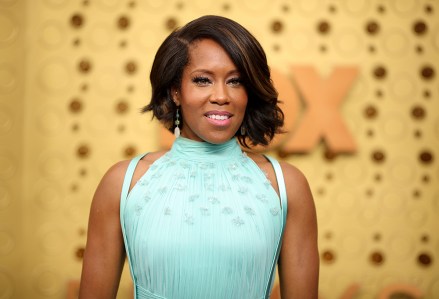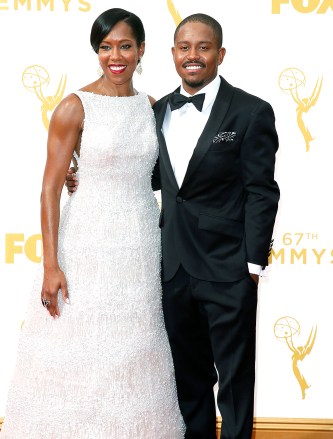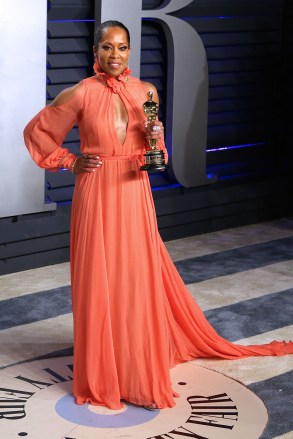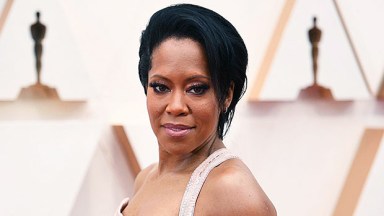
If you purchase an independently reviewed product or service through a link on our website, we may receive an affiliate commission.
If you’re looking at Regina King wondering how she barely seems to have aged since appearing in 1991’s Boyz n the Hood, know that her glow didn’t happen by accident. The 50-year-old Oscar winner takes deliberate steps to make sure that her dry skin is “soft to touch,” and you don’t have to be a Hollywood star or have millions in the bank to do the same.
Her tips are surprisingly simple – cleanse your face twice a day, moisturize, and wear sunblock.
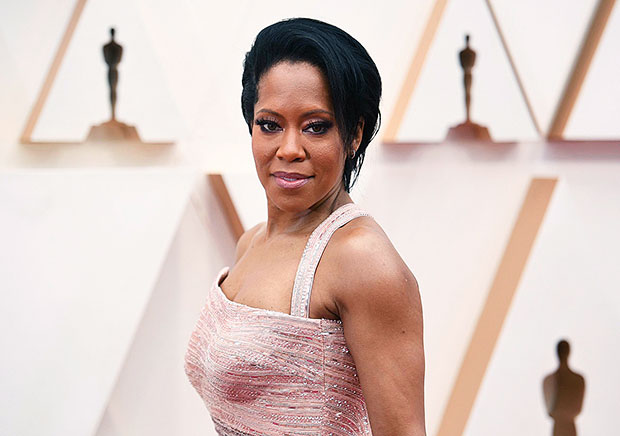
“I think it’s really, really important, keeping your skin clean,” the One Night In Miami director told HollywoodLife. “I don’t know what would have to be going on for me to go to bed without washing my face. It’s really, really important, washing your face every morning, every evening.”
Another key step? Moisturizing. “I even thought, because my skin seemed to be oily in the T-zone area especially, that I have oily skin, but that wasn’t the case,” she added. “It’s important to moisturize and find out what level of moisture is good for you individually.”
When it comes to products, Regina’s a big fan of those containing hyaluronic acid. “I’m definitely using that every day,” she said of the ingredient, which Vogue called “magical” because it “plumps” the “skin’s surface in seconds.” Luckily, it’s featured in the ARCONA skincare line, which she praises for being “really gentle.”
For her hands and body, the star relies on an inexpensive drugstore favorite, Vaseline. “I’ll use the Vaseline lotion and then I’ll use the OG Vaseline to kind of seal in that moisture,” she said. “On my kitchen sink, I have a little bit of Vaseline lotion and a little tub of Vaseline and, after I’m washing dishes or something, I’ll do a little pump and do a little cocktail and try to keep [my] hands moisturized.”
Wearing sunblock is also an essential part of her skincare routine. “[There’s] a misconception that Black folks don’t burn,” she said. “But you can burn and you can get skin cancer. Over sun exposure is one of the biggest culprits in developing skin cancer and I learned that from my dermatologist, because I was one of the people who did believe that myth that I don’t need sunblock. And she’s like, ‘Oh no sweetheart.’ So, yes, sunblock is real important.”
Regina believes that speaking to a dermatologist who knows how to treat Black skin is also essential. On March 24, the If Beale Street Could Talk actress participated in the Equitable Skincare For All Zoom Event, as part of her collaboration with Vaseline. At the roundtable featuring Black board-certified dermatologists, she helped to highlight the healthcare inequities that Black and Brown communities face every day.
Two figures that stuck out during the discussion: That only 3 percent of practicing dermatologists identify as Black and, according to a 2011 U.S. study, 47 percent of dermatologists feel their medical training didn’t prepare them to treat Black skin.
“That’s really problematic,” Regina said during the event. “It’s not easy to find a dermatologist who looks like you,” she also noted. “But I think, what’s really disheartening is the dermatologists that don’t look like you, aren’t able to treat your skin. We’re supposed to feel as human beings that when we go to the doctor – regardless of the type of medicine it is – that we should be treated.”
If a Black patient feels that he or she’s not being heard, Regina has a simple solution. “To find another doctor…” she told HL. “The way I look at it – and I didn’t come to that aha moment until I was an adult – but you being that doctor’s patient, you’re a gift to them. It’s not the other way around and they should be treating you as such. They should be treating you [like], ‘Thank you for choosing me. What can I do for you?’”
For those Black people who are keen to find a dermatologist – or any healthcare professional of color who understands their specific needs – she urges them to check out HUED. It’s a website that’s doing just that.
“It’s really a space where you can receive a lot of information…” she said during the event. “It’s beyond just access to physicians across the country, but there are articles on there that are speaking to issues that speak to you individually.”
To find out more about Equitable Skincare For All, go to Huedco.com/Vaseline.
